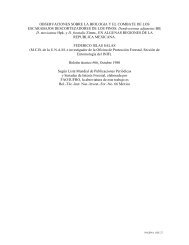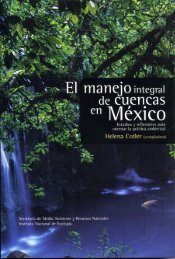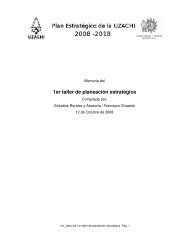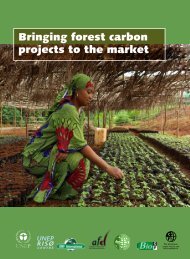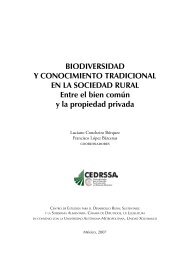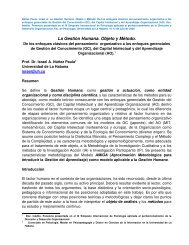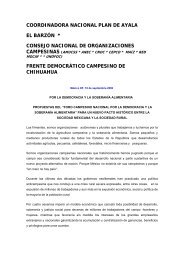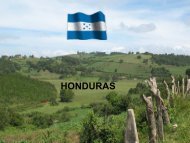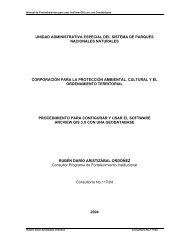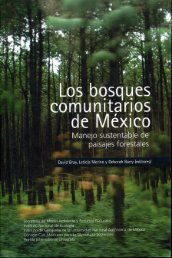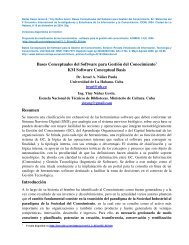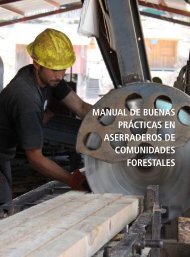STATE OF THE WORLD's INDIGENOUs PEOpLEs - CINU
STATE OF THE WORLD's INDIGENOUs PEOpLEs - CINU
STATE OF THE WORLD's INDIGENOUs PEOpLEs - CINU
- No tags were found...
You also want an ePaper? Increase the reach of your titles
YUMPU automatically turns print PDFs into web optimized ePapers that Google loves.
EMBARGOED UNTIL 14 January 2010<strong>STATE</strong> <strong>OF</strong> <strong>THE</strong> WORLD’S INDIGENOUS PEOPLESChapter VII Not for distributionEMERGING ISSUESBy Mililani TraskThe designation by the United Nations General Assembly of a First and Second International Decade of the World’sIndigenous People and the adoption of the United Nations Declaration on the Rights of Indigenous Peoples aremajor demonstrations of the progress that has been achieved in terms of raising awareness in the global arenaabout indigenous peoples’ issues, and promoting the rights of indigenous peoples. The creation of the PermanentForum on Indigenous Issues (UNPFII) and the designation of a Special Rapporteur on the human rights andfundamental freedoms of indigenous people are also significant milestones in integrating indigenous issues andadvocacy within the United Nations system. These accomplishments, however, have also revealed inadequacieswithin the United Nations system, which need to be addressed if the goal of mainstreaming indigenous issueswithin the system and its programmes is to be achieved in the future.This chapter presents a brief overview of emerging indigenous issues that need to be dealt with in the nearfuture. These issues relate to: Policies and disaggregated data in order to address indigenous peoples’ issues and protect theirrights; Resolution of conflicts involving indigenous peoples, States, the United Nations system and civilsociety; Displacement of indigenous peoples, including issues of violence and militarization, conservationrefugees and globalization; Migration and urbanization of indigenous peoples; Indigenous peoples living in voluntary isolation.The critical need for policies and disaggregated dataThe mandate of the Permanent Forum and its programme of work require that the Forum provide advice andmake recommendations to the United Nations Economic and Social Council (ECOSOC) on indigenous issues inthe areas of economic and social development, culture, education, the environment, health and human rights.The Forum is also tasked with the gathering and dissemination of information on indigenous peoples, awarenessraisingand the promotion of their integration and coordination within the United Nations system.In order for the Forum to adequately assess the situation of indigenous peoples and pursue its mandate, it musthave access reliable data on indigenous peoples. The gathering and disaggregation of data by the United Nationssystem and States is undertaken pursuant to the policies adopted by them relating to indigenous peoples. Onthe one hand, the failure of many United Nations agencies, funds and programmes and States to adopt policiesand guidelines relating to indigenous peoples means that there is also insufficient reliable data available to theForum in critical areas. On the other, the lack of data represents a considerable obstacle to the development andimplementation of sound policies.220 | CHAPTER VII




